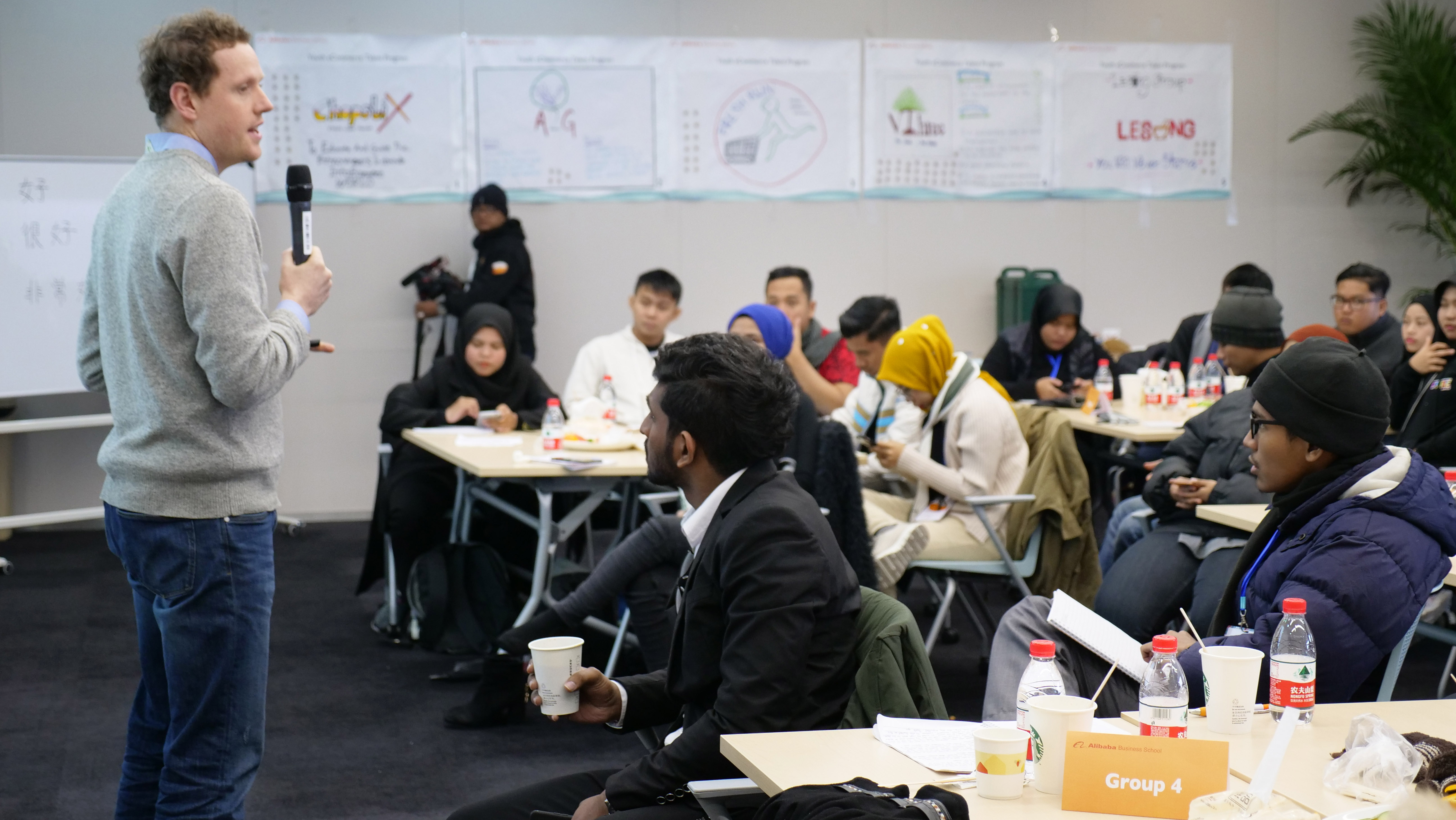
Thirty Malaysian college-age students tapped into China’s booming e-commerce prowess this month, participating in an Alibaba-sponsored program that underscored the company’s commitment to spreading the spirit of entrepreneurship throughout the region.
Selected by the Malaysia Ministry of High Education, the students in the Youth e-Commerce Program attended lectures and discussions at Alibaba’s global headquarters in Hangzhou. For 10 days, the young budding entrepreneurs met with business unit leaders at Alibaba and visited sites, such as Freshippo (also known as Hema) supermarkets, to see innovative strategies like New Retail – the marriage of online and offline retail systems –in action.
As a technology juggernaut and operator of one of world’s most-comprehensive digital-shopping platforms, Alibaba is committed to empowering small and medium-sized enterprises everywhere to take part in global trade. That mission prompted Alibaba founder Jack Ma to roll out the Electronic World Trade Platform last year. Malaysia was the first country to host an eWTP hub outside of China.
To promote e-commerce in the country, Malaysia in 2010 enacted the Entrepreneurship Policy for Higher Education policy, a national initiative to increase awareness and education in major tertiary education institutions.
“We have chosen to collaborate with Alibaba because, not only it is well known and respected, it has emerged the fastest than other platforms,” said Zuriadah Mohamed Said, principal assistant secretary of the Entrepreneurship Unit under MOHE.
Read more on eWTP and Alibaba’s collaboration with Malaysia:
- Ma’s Call for Inclusive Trade Heard By G20, WTO
- EWTP Finds First Overseas Base in Malaysia
- New MOU to Pave the Way for E-Trade Between China and Malaysia
- EWTP Joins WTO, World Economic Forum in “Enabling E-Commerce Initiative”
The student training program under Alibaba’s Global Initiatives Program is an integral part of Alibaba’s holistic multiprong approach to shaping the global e-commerce industry.
“Our goal is foster a generation of talented and passionate young entrepreneurs who can help bring new innovations and transform the e-commerce landscape of their home countries,” said Brian Wong, vice president of Alibaba Group, who heads the Global Initiatives Program.
“My training at Alibaba helped me to dream big and see the potential of doing business all over the world, and not just in Malaysia,” said YEP participant Javendra Kumar. The 23-year-old is a fresh graduate of National University of Malaysia in civil and environmental engineering and the founder of Marijimat.com, an online e-commerce platform he created two years ago.
Another participant, Siti Nur Azila, 24, and a co-creator of the Lyla Cosmetic brand, said the major takeaway for her is the focus of putting customers first, a core value at Alibaba.
“When I go back to Malaysia, I want to create a software that can help me get to know my customers better and follow up with them so our relationship doesn’t stop after they purchase the items,” she said.
In addition to students, the program also homes in on the instructors. Last week, Alibaba held a “Train the Trainers” course for business-related college professors in Malaysia on the latest innovations and best business practices in cyber retail. The goal is to establish a large pool of talent ready to meet human-resources needs as the sector expands and evolves there.
For the incumbent e-commerce players, Alibaba is offering training to help sharpen their expertise, so they can strengthen their existing business and be the future architects of e-commerce in their home country. In November last year, a group of e-commerce start-up founders from Africa took part in an intensive training course at Alibaba to learn about the company’s operations from online storefront management, building relationships with vendors, mapping out a logistic network, to boosting rural economy through e-commerce.
The third layer of the training happens at a government level. One of Ma’s key messages in his recent speeches is that for e-merchants to flourish, they must have the strong backing of the government.
On that front, a group of ministerial-level officials from the Philippines will visit the Hangzhou campus next week to learn how to craft sound policies to better accommodate and navigate the growth of e-commerce trade in their country. It is the first overseas government training program for the Alibaba Business School, and the program will be expanded to more countries in Southeast Asia.




